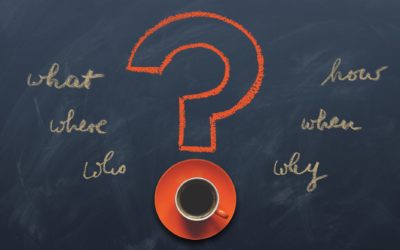If you follow the current debates concerning the education system, you get the feeling that the quality of education – at least in the subjective perception – is continuously decreasing. Dissatisfaction continues to rise, especially among students, but also among parents and teachers. While students feel that educational institutions are unable to prepare them for later life and impart essential knowledge, teachers report demotivated and distracted students who show little interest in learning new things. This raises the question of whether children and young people are actually no longer interested in acquiring new knowledge or skills, or whether there is a misunderstanding here. This post will look at what the difference is between education and learning and what practical implications can be derived from this.
Disclaimer
All content and statements within the blog posts are researched to the best of our knowledge and belief and, if possible, presented in an unbiased manner. If sources are used, they are indicated. Nevertheless, we explicitly point out that the content should not be understood as facts, but only as a suggestion and thought-provoking ideas for the own research of the readers. We assume no liability for the accuracy and/or completeness of the content presented.
Even though learning and education pursue the same goal – the acquisition of new knowledge, the development of (key) competencies and the acquisition of useful skills – they nevertheless differ fundamentally in terms of their approaches. Learning is a more informal, ongoing process in which a person continues to learn and develop on their own, motivated by their own interests and/or needs. In contrast, education is the more formal process of knowledge transfer on the part of teaching persons, which usually does not take place permanently but is limited in time. The cognitive learning process is part of the nature of human beings and independent learning is often more sustainable because it is encouraged by the high degree of self-determination. In addition, people are more or less free with regard to the selection of topics and can consciously decide on learning depending on their own interests, so that no compromises have to be made here, provided that the learning content does not result from challenges from practice. However, the independent learning process also has a decisive limitation: self-learned knowledge is difficult to prove. For the professional world, this means that organizations would have no direct starting point for evaluating candidates and it would be difficult to verify whether an applicant actually has the required and needed competencies. In the case of education, this problem does not usually exist, as participants receive a certificate or other proof after passing through the educational institution by confirming their knowledge and competencies. These are verified by tests within the educational programs so that they can be confirmed (by personnel qualified to do so). This allows for some comparability when two or more individuals are competing for a position in the professional world. While independent learning emphasizes individuality, education often takes place in groups (of varying sizes). This means that ones individual needs cannot always be addressed, but that the education offered is designed for the masses. In addition, the content is prescribed by the teachers within the framework of a curriculum, which leads to less self-determination and thus often also to less connectedness.
“Education is what remains after one has forgotten what one has learned in school.”
– Albert Einstein
Education should never undermine learning, but rather be understood as a supplement to the ongoing learning process. Optimally, education promotes independent learning and the individual’s thirst for knowledge. School, for example, could be the place where children are taught how to learn effectively and efficiently. However, this would be a significant change from the current understanding of the education system, which is still very much designed to explicitly teach knowledge. However, if this were to succeed, it could allow for a significant improvement in the prevailing situation from which many people could benefit. It is conceivable that school would then no longer be seen as a burden, but that students would once again enjoy attending classes and learn more sustainably. This is not to imply that teaching basic knowledge in school is wrong, but it is quite possible that the curriculum is now too extensive, so that many creative freedoms are lost here due to the content specifications. While the school would thus teach content and methodological basics, for example, the university could be a place where subject- and career-specific knowledge is imparted with the help of the basics learned, and where students can acquire career-relevant skills and competencies. Even if a curriculum in its function as a content specification restricts individuality, it still has an advantage: in practice, people can encounter specific approaches through the specification of content that they would have overlooked or not perceived in the context of the independent learning process. Content selection by qualified personnel thus makes it possible to ensure that no important aspects are neglected in the course of training. Such aspects of content can then be further explored in the course of independent learning if the person is interested in the subject matter. In this understanding, the central task of educational institutions would be to teach people the methodological approaches to the learning process or to introduce them to various topics, which can then be applied or deepened in a sustainable learning process. Perhaps the most important advantage of independent learning is that, unlike education, there is no need to consider other people. The person is free in terms of learning pace and content and does not have to compromise, as is often the case when the learning process is linked to the learning progress of others.
School and academic education definitely has a right to exist in practice, but it can often be observed that there is far too much focus on the certificates acquired. A frequent result of this is exam learning, which is not designed for the sustainable acquisition of knowledge and skills, but rather to obtain a desired reward. This can be, for example, passing an exam or receiving a good grade. On the other hand, such evidence also enables a certain degree of comparability, which in some cases significantly simplifies the selection process of organizations with regard to their employees, even if relevant soft skills are often disregarded in the process. In some occupational fields, it also makes perfect sense that one’s own skills must be proven before starting work and that it is not only possible to check afterwards whether the person has told the truth with regard to his or her own skills.
Both learning and education aim at the accumulation of knowledge and the acquisition of relevant skills. While the independent learning process is particularly geared toward sustainable learning, education is a transmission process in which relevant knowledge is passed on by qualified persons. In practice, the focus is often on confirming one’s own competence by means of certificates or other evidence, but they can however, only be acquired in the context of education, as they are a central part of the selection process in almost all organizations. If people and especially children are to be given back the fun of learning, a change must take place at this point. One conceivable approach would be to view educational institutions as a place where methodological and content-related basics are taught that will promote independent learning at a later stage.



